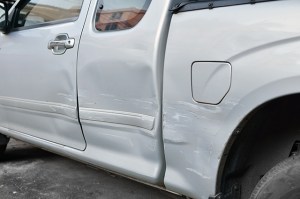Renting a car is a straightforward process until it comes to the question of rental car insurance. Should you buy rental car insurance from the rental company? Are you protected by your credit card company? Or are you already covered by your own auto insurance?
Before renting a car for your next road trip, learn whether you should sign up for this additional coverage on the spot.
Rental Car Insurance Options
When you rent a car, you will be asked whether you want to buy rental car insurance.
You will be offered multiple coverage options, and they may duplicate what you already have through your current auto policy. The daily cost for coverage can be high, often exceeding the amount it costs to rent the vehicle itself.
Loss damage waiver: With this option, the rental company won’t charge you if the rental car is stolen or damaged.
Collision damage waiver: Similar to the loss damage waiver but limited to collisions, this type of coverage protects you in the event the rental car is damaged. Learn more about what happens if you crash your rental.
Liability coverage: This coverage meets state requirements for bodily injury and property damage liability.
Personal accident insurance: In the event there are injuries to you or your passengers while operating the rental car, this coverage will pay for the associated medical expenses. It also provides accidental death coverage.
Personal effects coverage: This covers any belongings in the rental car in the event they are stolen.
Is It Necessary to Buy Rental Car Insurance From the Car Rental Company?
When you selected your auto insurance policy, you and your agent probably spent time researching options and making sure your coverage meets your needs. State requirements such as no-fault insurance mandate the liability coverage that you hold, so you should already have the amount of bodily injury and property damage coverage that meets minimum standards.
In most states, if your current policy has collision and comprehensive (covers damages to your vehicle not caused by collision, such as vandalism, theft or hitting an animal), the coverage will carry over to a rental as well. If you did not choose these optional protections, it generally is worth the cost to purchase insurance from the rental car company. The unanticipated cost of replacing a rental vehicle can be devastating.
Most auto insurance policies cover you while you are operating a rental vehicle, but there are often gaps in that coverage such as loss of rental fees if and when a rental car is damaged. AAA insurance professionals advise consumers to purchase some if not all of the insurance coverage offered by the rental car agencies. In addition, when travelling internationally, your auto insurance extends to Canada, but will not cover you in other foreign countries for rental vehicles.
If you are unsure about whether to opt for some or all of the coverage options listed above from the rental agency, take the time to contact your insurance provider and review your policy prior to renting a car.

Credit Card Insurance Benefits
Check with your credit card companies to determine if they provide rental car insurance. You might be surprised to learn that you have this benefit, which is commonly included in cards that offer travel rewards programs. In order for it to take effect, you must reserve the car and pay for it using that specific credit card and decline the insurance offered by the rental company.
Once you confirm this benefit, there are other details to ask about. Find out whether your credit card company offers primary or secondary coverage. Primary coverage will take the place of your regular car insurance policy, while secondary will cover expenses not paid for by your main policy. Also, ask for information about deductibles, since this is the amount you will be required to pay out-of-pocket if you make a claim.
Personal Usage Restrictions
When you rent a car for personal use, you are within the bounds of your auto insurance policy. However, if you plan to use a rental car for business reasons, you may not have the same protections. It is always advisable to contact your insurance agent ahead of time if you have questions about restrictions related to your coverage.
Protection for Personal Belongings
Particularly when drivers rent a car for vacation, they want to purchase personal effects coverage such as electronics, jewelry and other expensive items that may sit in an untended car for longer periods than usual. Remember that your homeowners’ or renter’s policy likely provides some protection when you are off-premises as well.
Uninsured Driver Considerations
All states with the exception of New Hampshire require auto insurance to purchase a car, so you most likely already have coverage. But vehicle insurance requirements vary broadly from state to state. Do you have enough insurance to cover you from a rental car accident? And are you protected from an uninsured or underinsured driver?
In states including Connecticut, Massachusetts and New York, all drivers must purchase uninsured/underinsured motorist coverage as part of their auto insurance policy to protect from at-fault drivers that carry little or no liability insurance coverage.
14% of drivers in the United States were uninsured in 2022, according to the most recent report from the Insurance Research Council.
If you do not have car insurance and are renting, you should purchase insurance from the rental car company. You will need to meet minimum standards for liability, and you can rest assured that the rental insurance will cover you in the event of an accident. You can inquire about credit card benefits too, but make sure there that loopholes don’t leave you exposed to potential financial hardship.
Should You Get Rental Car Insurance?
To be sure you are fully protected, the answer is yes. However, when deciding whether to purchase rental car insurance, you should take multiple factors into consideration, starting with the protection offered by your current auto insurance and credit cards, then decide how much rental car insurance you need to fill in the gaps.
Rental Car Reimbursement Coverage
All of the above options can protect you from damages or losses that may occur when renting a car, but rental car reimbursement is recommended to cover the cost of the rental itself should you need a vehicle while your car is in the shop due to a covered accident or loss.
Factors such as supply chain issues and lack of inventory from struggles brought on by the pandemic, are causing car rental costs – like auto insurance – to increase, making car rental reimbursement coverage more valuable than ever.
This coverage can be added to your personal auto insurance policy with daily reimbursement and maximum payout limits chosen at the time of purchase. Considering the rising cost of rental cars, you may want to think about increasing these limits.
Still have questions about insurance? Reach out to a AAA insurance agent.
Need to rent a car? Take advantage of exclusive AAA discounts and benefits when you rent from Hertz.
This article has been updated and republished from a previous version.
One Thought on “Should You Buy Rental Car Insurance?”
Leave A Comment
Comments are subject to moderation and may or may not be published at the editor’s discretion. Only comments that are relevant to the article and add value to the Your AAA community will be considered. Comments may be edited for clarity and length.
















Does anyone have advice about rental car insurance tips that arise when traveling overseas and renting a car?